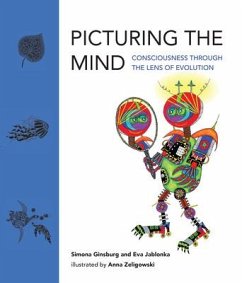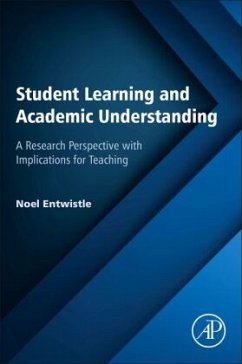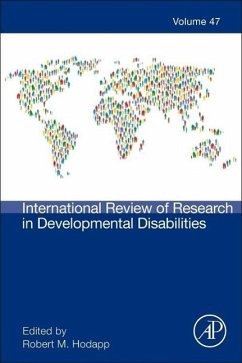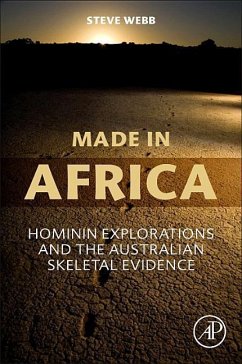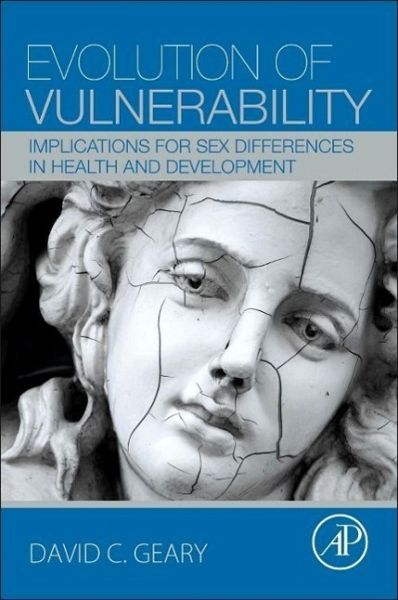
Evolution of Vulnerability
Implications for Sex Differences in Health and Development

PAYBACK Punkte
20 °P sammeln!
Biologists have known for decades that many traits involved in competition for mates or other resources and that influence mate choice are exaggerated, and their expression is influenced by the individuals' ability to tolerate a variety of environmental and social stressors. Evolution of Vulnerability applies this concept of heightened sensitivity to humans for a host of physical, social, psychological, cognitive, and brain traits. By reframing the issue entirely, renowned evolutionary psychologist David C. Geary demonstrates this principle can be used to identify children, adolescents, or pop...
Biologists have known for decades that many traits involved in competition for mates or other resources and that influence mate choice are exaggerated, and their expression is influenced by the individuals' ability to tolerate a variety of environmental and social stressors. Evolution of Vulnerability applies this concept of heightened sensitivity to humans for a host of physical, social, psychological, cognitive, and brain traits. By reframing the issue entirely, renowned evolutionary psychologist David C. Geary demonstrates this principle can be used to identify children, adolescents, or populations at risk for poor long-term outcomes and identify specific traits in each sex and at different points in development that are most easily disrupted by exposure to stressors.
Evolution of Vulnerability begins by reviewing the expansive literature on traits predicted to show sex-specific sensitivity to environmental and social stressors, and details the implications for better assessing and understanding the consequences of exposure to these stressors. Next, the book reviews sexual selection-mate competition and choice-and the mechanisms involved in the evolution of condition dependent traits and the stressors that can undermine their development and expression, such as poor early nutrition and health, parasites, social stress, and exposure to man-made toxins. Then it reviews condition dependent traits (physical, behavioral, cognitive, and brain) in birds, fish, insects, and mammals to demonstrate the ubiquity of these traits in nature. The focus then turns to humans and covers sex-specific vulnerabilities in children and adults for physical traits, social behavior, psychological wellbeing, and brain and cognitive traits. The sensitivity of these traits is related to exposure to parasites, poor nutrition, social maltreatment, environmental toxins, chemotherapy, and Alzheimer's disease, among others. The book concludes with an implications chapter that outlines how to better assess vulnerabilities in children and adults and how to more fully understand how, why, and when in development some types of environmental and social stressors are particularly harmful to humans.
Evolution of Vulnerability begins by reviewing the expansive literature on traits predicted to show sex-specific sensitivity to environmental and social stressors, and details the implications for better assessing and understanding the consequences of exposure to these stressors. Next, the book reviews sexual selection-mate competition and choice-and the mechanisms involved in the evolution of condition dependent traits and the stressors that can undermine their development and expression, such as poor early nutrition and health, parasites, social stress, and exposure to man-made toxins. Then it reviews condition dependent traits (physical, behavioral, cognitive, and brain) in birds, fish, insects, and mammals to demonstrate the ubiquity of these traits in nature. The focus then turns to humans and covers sex-specific vulnerabilities in children and adults for physical traits, social behavior, psychological wellbeing, and brain and cognitive traits. The sensitivity of these traits is related to exposure to parasites, poor nutrition, social maltreatment, environmental toxins, chemotherapy, and Alzheimer's disease, among others. The book concludes with an implications chapter that outlines how to better assess vulnerabilities in children and adults and how to more fully understand how, why, and when in development some types of environmental and social stressors are particularly harmful to humans.









